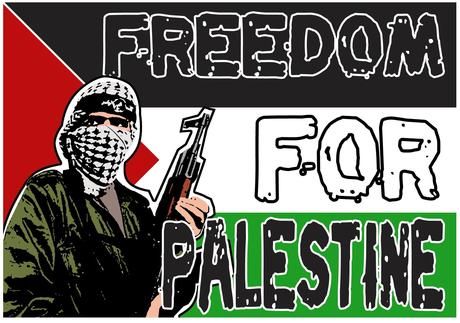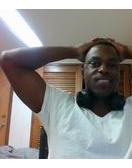
Talking Palestine with Dana Busgang
By Devon Douglas-Bowers
This is a transcript of a recent interview I had with Dana Busgang, who is currently working in Palestine.
1. Tell us about yourself.
My name is Dana Busgang, I am 21 years old, and originally from South Orange, NJ. I am going into my senior year at Goucher College in Baltimore, MD, where I major in Political Science with an International Relations minor.
2. What made you want to go to Palestine?
There are a number of factors that influenced my decision to spend my summer in Palestine. Perhaps the largest and most salient reason is that I grew up in a very pro-Israel area and was raised to believe that I should defend Israel and support it no matter what. I was raised to believe that Israel could do no wrong.
Somewhere along the way, I started questioning whether the so called Israeli Defense Forces are really for defense. As I started learning more and more about the atrocities committed against Palestinians daily, continuing my studies as a Political Science student, one sentence repeated itself over and over in my head; not in my name.
I consider it my duty to make sure that the Palestinians receive justice for the injustices that the state of Israel has committed against them in the name of Jews everywhere. The other reason stems from American perceptions of Arabs in general. The way that the Middle East is treated in the mainstream media, the portrayal of Arabs in pop culture, media and in general as "terrorists," "animals," or "uncivilized," always struck me as wrong. A whole civilization of people could not possible be the demonized version we hear of in America.
After spending a semester in Jordan, I knew I had to come back as soon as possible. I want to be able to go home, and tell people what it’s really like in Palestine, that not all Arabs, not all Palestinians are terrorists who value death and blood, that these are wonderful people, living in terrible conditions.
3. What were your views on the Israel-Palestine conflict before traveling? How have your views changed since?
I have definitely been pushed way farther to the left than I ever imagined due to my stay here and used to consider myself very neutral, very central, but I've definitely begun to start thinking far more along pro-Palestinian lines.
It’s hard to keep a level head when surrounded by oppression, death, and pain. I never really believed in a two state solution, and I still don't. While I think it’s important for Palestinians to have self determination, I also have come to learn of rampant corruption inside the Palestinian Authority, and the distrust that the Palestinian people have in their "government." Therefore, i believe a new Palestinian state would be ripe for takeover by even more radical parties (such as ISIS), or would fall into a violent struggle for power and control.
As far as how my views have changed, I understand now just how powerless the Palestinians are in the current situation. I understand why they resort to violence to resist, I understand that there are many different ways of resistance, and I understand the necessity of resistance. I also didn't realize until coming here how important and salient the idea of the right of return still is.
4. Many people would argue that one should have a neutral stance on this issue. Do you think that such a stance is acceptable in anyway, especially given the Desmond Tutu quote, "If you are neutral in situations of injustice, you have chosen the side of the oppressor?"
I have struggled a lot with the question of what my role and the role of the international community in general is in this conflict. One the one hand, the posts and arguments I witness over Facebook are disgusting, disturbing and ridiculous considering most of them occur between people who are not here on the ground experiencing what is happening.
Even then, the dissemination of trustworthy, non-biased information here is nearly non-existent, with both sides spreading lies and propaganda. I have given up trying to urge people not to make judgments about a situation that they know nothing about, and do my best to inform my friends and family based on the reality that I witness on the ground.
While I do believe it is important, especially for Americans as our government supplies most of the weapons and arms being used against the Palestinians, to have not take a neutral stance, I think that the role of ordinary Americans is to pressure our own government to recognize the injustice occurring in Palestine and stop supporting Israel militarily. In this globalized and hyper connected world, its nearly impossible not to take a stance on an issue like this, and it also makes the international community that much more important.
However, posting on Facebook, sharing articles with like minded friends, or getting into pointless arguments on FB posts is not helping anything. If you want to change something—go to a protest, call your representative, or even sit down and have a face to face, rational discussion with someone without resorting to name calling or shouting.
5. Tell us about your first couple of days in Palestine.
Oh goodness, that was a while ago. Lately, I have been feeling and thinking so much, that I cannot find the words to summarize what I have been experiencing. So it may be a little difficult to summarize, but I'll try.
The most shocking thing for me originally upon coming to Palestine was the physical travel itself. In order to get to Nablus from Tel Aviv, I hitched a ride to Jerusalem with my cousin, snagged down a bus to Ramallah and then from there took a private taxi to Nablus instead of dealing with a another bus and my giant suitcase. The road from Ramallah to Nablus has a US state department warning placed on it, due to the amount of settlements and Palestinian villages.
If you drive in a Palestinian taxi, you risk settler attacks. If you go by Israeli car or bus, you risk Palestinian stone throwers-- there's no winning. This road, unlike many others in the West Bank, was nicely paved and had many signs pointing out nearby towns-- but wait; they weren't for towns, just for settlements. The signs that pointed to Palestinian villages were red and angry, warning that they were about to enter a "dangerous" Palestinian village. I laughed to myself, thinking-- what danger do I face from Palestinians? Getting overfed? Too much tea and coffee? After driving through this stretch of settlements, we hit the village of Huwara, which is about 10 minutes away from Nablus.
There were army jeeps and soldiers milling about, dressed like they were at war while just standing near groups of Palestinian youths. Finally we arrived to the Balata refugee camp, where we would be working for the rest of the summer and staying in for a week. Two foreign girls, with giant suitcases looking slightly lost and confused in a refugee camp was definitely not a sight that people are used to. Eventually we found our accommodation, and got settled. Later, we went into the city to meet our co-worker/boss/friend Omar (name has been changed) to have dinner and drink tea in a nice park.
The next day we were taken on a tour of the old city, where we got to see the only Nablusi soap factory still in working order, eat some delicious Knafeh (a traditional Arab sweet that Nablus is famous for), and see Omar's grandparents home that has a beautiful view of the old city. Even until this day, when walking around this city, I hear "Welcome to Palestine," (Ahla wa sahla in Arabic) and it always warms my heart.
The next few days were spent meeting with the kids that we would be working with for the summer, and getting to know the city better. Nablus is unique, in my perspective, because it’s very isolated. The Palestinian authority has a visible presence here, and you could spend months staying within the borders of the city and not seeing Israeli soldiers or settlers.
This gives you the feel that you are in Palestine, the country, not Palestine, the occupied territory. The most visible reminder is the Israeli military base that sits atop Mount Gerzim, with its radio towers casting an eerie red glow into the night.
6. What has been the most uplifting experience you've had while in the area?
My time here has been marred by violence, and death. When trying to think of one specific moment that helps me see some light in this situation is difficult. Things like seeing the kids I work with get excited and passionate about creating a summer camp program for their friends in the camp, seeing the city come alive at night during the last few days of Ramadan and for Eid al- Fitr (the holiday right after Ramadan), being invited into so many people's homes for tea, coffee, or a meal, being told "Welcome to Palestine," by a group of slightly threatening looking young men whom I was suspicious of beforehand, being able to communicate with a taxi driver or a young child with my broken Arabic-- these are the moments that lift my spirits.
Living in this place is hard, but the people here are so tough and resilient. They find ways to smile, joke and laugh every day, and are generally some of the most well humored people I have ever met. It’s truly incredible and inspiring.

